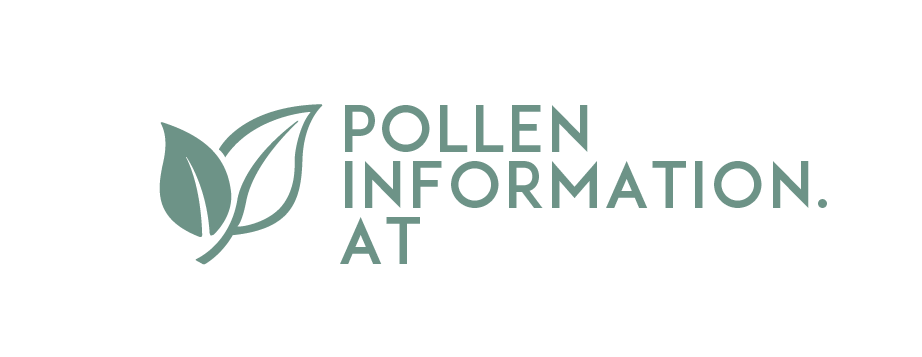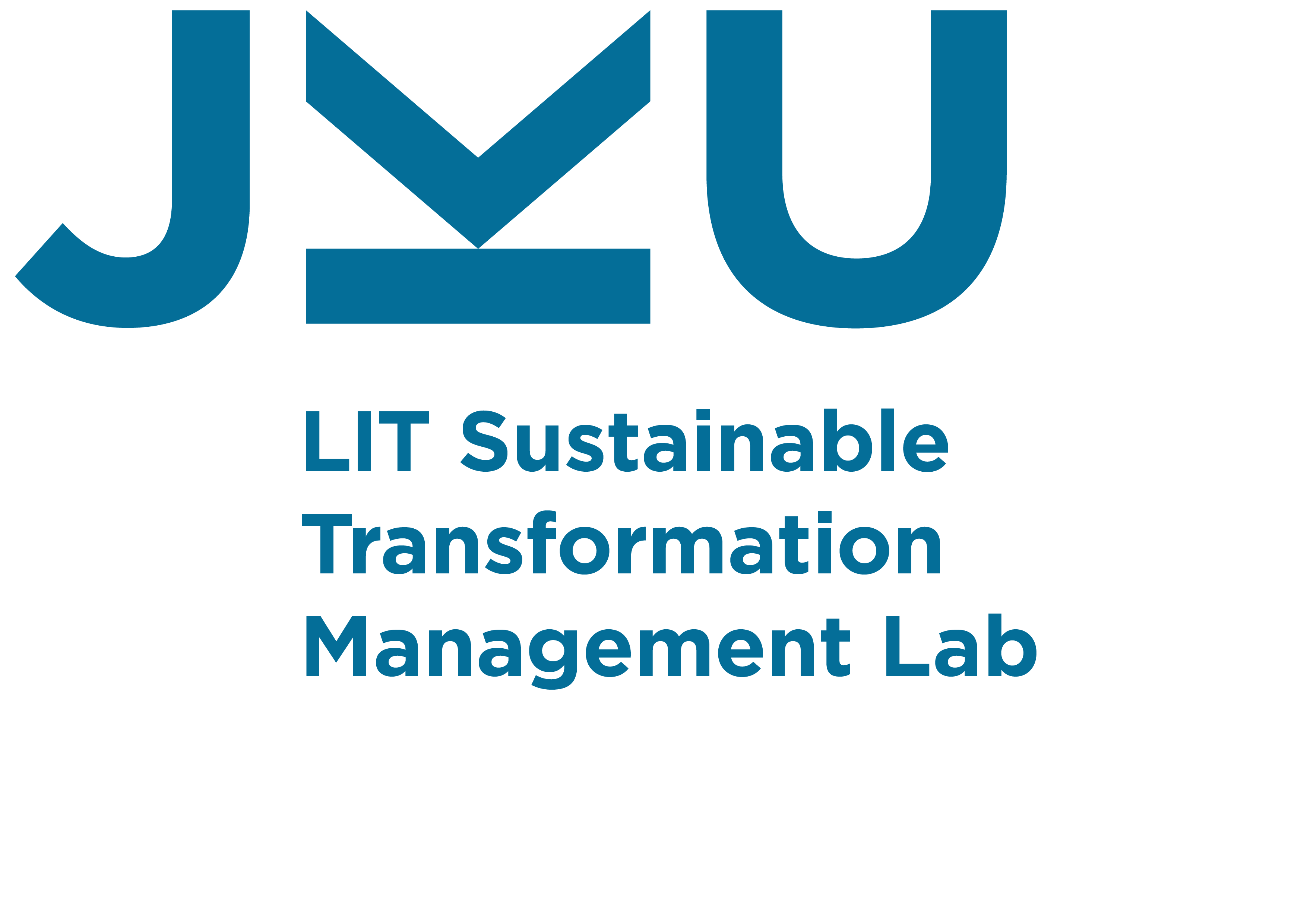Update Social
With your ideas towards a innovative social sector for all
Our society is facing numerous social challenges and the public administration, charities & social service providers, civil society and (social) enterprises are already working to solve them. In the face of increasingly complex challenges, there is a need for more collaboration and dialogue across sectors. Together we can achieve more!
UpdateSocial is designed to provide the framework for collaboration!
In all sectors of our society, there are people who either already have an idea for solving a challenge or want to develop new approaches (e.g. new products, social services). With UpdateSocial, we bundle the innovative power of all sectors and create a breakthrough together. We thus combine the wealth of ideas of civil society with the implementation power of charities and public administration.
To begin with, we (you and I, and many people from different sectors) come up with ideas and approaches to solutions for the previously defined social challenges in a collaborative 48 hour “Ideenwerkstatt” (Ideation Lab). A support program (Accelerator Program for approaches to solutions to social challenges) will accompany the further development of these approaches to make them ready for collaboration with piloting and scaling partners such as Volkshilfe Upper Austria, other social service providers or public administration.
ALL are called to participate. Co-creative, local and digital.

Join the update of the social sector by citizens for citizens!
Together we can drive innovative solutions and strengthen the community for social innovations in Upper Austria.
Role as participant:
Become part of the community of makers, benefit from a public-supported, collaborative and solution-oriented cooperation, help to develop new solutions for the social challenges of our time or commit yourself to take it to the next level with your idea. Curious? Then visit us at https://updatesocial.org/mitmachen/.
Role as mentor / ambassador / implementation partner:
- Support the participants with your knowledge and network. Work with the community at eye level and contribute to a livable future for all.
- Join us in calling on all citizens in Upper Austria and everyone who wants to come to participate in the 48h “Ideenwerkstatt” (Ideation Lab). Whether it's a newsletter or social media - anything works and helps us.
- Do you know other role models who stand for change? Invite them to become part of UpdateSocial.
If you are interested, please contact This email address is being protected from spambots. You need JavaScript enabled to view it..
These partners are already part of UpdateSocial: https://updatesocial.org/team/#partner.
Our mission
With UpdateSocial we want to strengthen the social innovation ecosystem in Upper Austria. The core element of this ecosystem is a strong and transformational community in which there is trust in each other. Thus, this initiative serves as the basic building block for an organically growing movement that drives the digital and green transformation of the social service sector.
How does UpdateSocial work?
Form alliances and define challenges
- We form alliances with leading actors from all sectors to pool everyone's innovative power and foster collaboration.
- The focus is on social challenges that need to be solved. Together with key players in public administration (Land OÖ - Upper Austrian provincial government, Stadt Linz) and with the expertise of Volkshilfe Upper Austria, we identify relevant social issues that we address to civil society.
Mobilizing civil society and (further) developing solutions
- Through an open call at the beginning of March, civil society is to be mobilized for UpdateSocial. Thus, a community will be built to advocate for a sustainable social service sector.
- In mid-April (21. - 23. April 2023), the 48h “Ideenwerkstatt” will take place, where existing and new solution approaches for the identified challenges will be developed. Selected solutions will then be awarded by a jury in diverse categories.
Supporting and scaling ideas with potential
- Initiatives can apply for a support program after the “Ideenwerkstatt” (until 04. April 2023). This starts at the beginning of May (10. Mai 2023) and helps the teams to further develop their solutions through e.g. expert inputs, community meetings and the help of mentors.
- Following the support program, the pilot program will start in October 2022. On October 3, 2023, the project groups will have another opportunity to present their solutions at the Community Celebration. Joint successes will be celebrated, the next steps will be targeted, and the future of the social innovation community will be shaped. What works will be piloted with united strength, e.g. with the help of an implementation partner from our network for social innovation.
Derive and process insights
- Throughout the process of UpdateSocial, which is funded as a scientific project by the Ludwig Boltzmann Gesellschaft, we are collecting insights for a comprehensive "Learning Report" for shared learning on the one hand and for basic research of Open Social Innovation on the other hand.
More information about the project can be found here:
- https://updatesocial.org
- https://updatesocial.org/linktree/
- https://ooe.orf.at/stories/3200196/
- https://www.linkedin.com/company/updatesocial/
- https://www.instagram.com/updatesocial_ooe/
https://www.citizen-science.at/en/immerse/learn-about-citizen-science/tag/health?start=10#sigProIdea3ccad175
The Psychological is Participatory
Counselling centres for women* are important institutions that have been founded since the 1980s by the second women's movement. In the project, researchers are conducting research together with counsellors and clients of Viennese women's* counselling centres. We are interested in the life stories of women* who seek help at counselling centres. How can women lead a good life in this society today and what role can women's counselling play in this? In workshops, questions and methods are developed together with the project partners. The women* and the counsellors are guided to document their knowledge and experiences in the form of narrated stories or/and with visual methods. The use of a critical participatory action approach enables both counsellors and clients to reflect on changes that have occurred through a feminist, psychological counselling process.
The perspective of women clients has very rarely been considered in the history of psychology. Especially structurally disadvantaged women* are often not heard, e.g. migrant women or single parents affected by poverty. Research with clients aims to empower women* and to explore with them how social circumstances have shaped their lives.
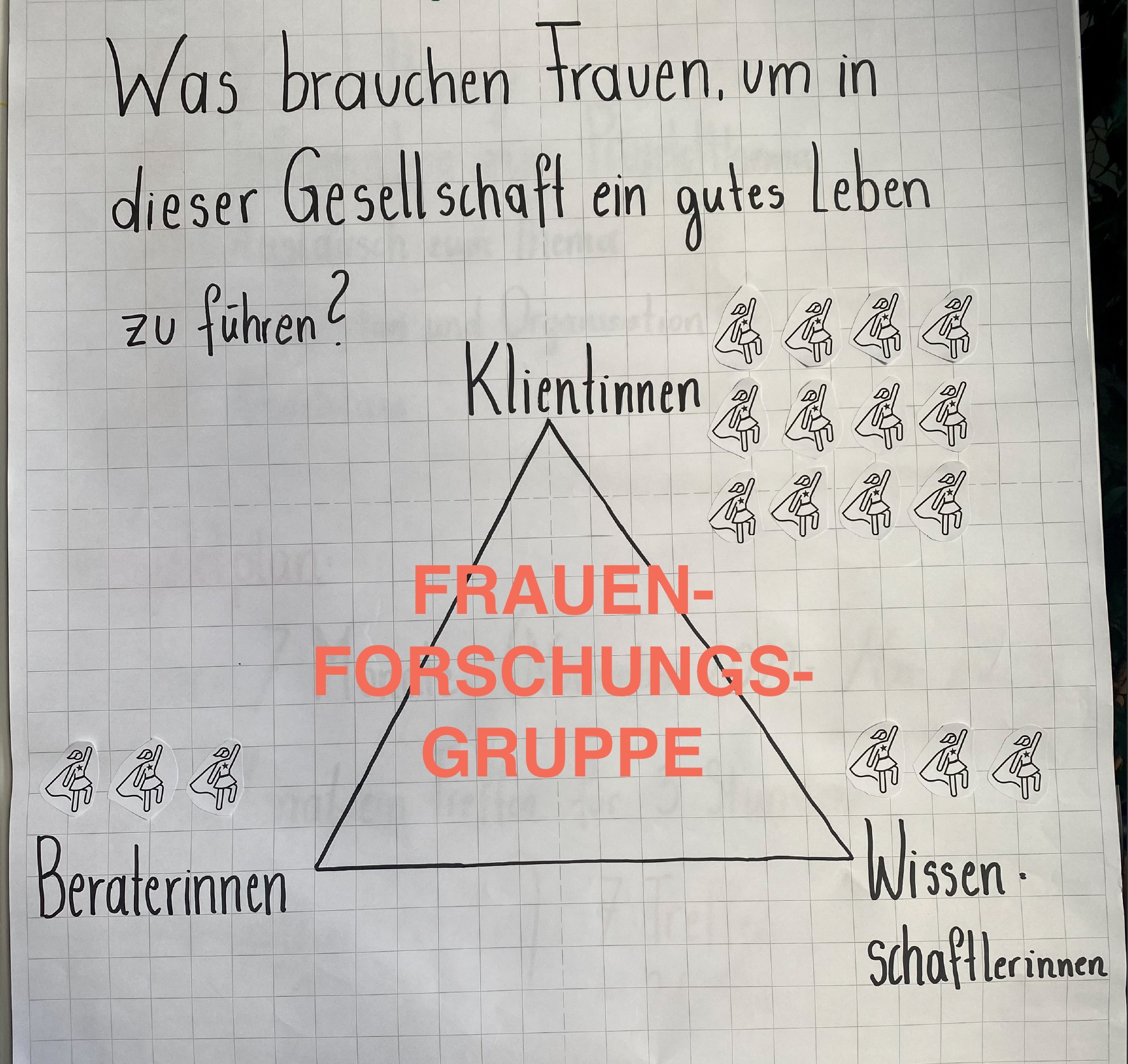
"The Psychological is Participatory - Feminist critical participatory action research with women's counselling centres and their clients" (2022-2023), funded by the Austrian Science Fund FWF (TCS 112 Top Citizen Science) and co-financed by the Women and Family Department of the Arbeiterkammer.
Project management: Ass.-Prof. Dr. Nora Ruck
Project team: Dr. Barbara Rothmüller, Julia Struppe-Schanda, MSc.
In the project we are conducting research together with Dr. Bettina Zehetner from the counselling centre Frauen* beraten Frauen* and Dr. Sigrid Awart and Dr. Andrea Kaiser-Horvath from the counselling centre Peregrina as well as with 12 clients from both counselling centres*. Prof. Michelle Fine & Prof. María Elena Torre (CUNY), Prof. Thomas Stefan (Postdam) and Prof. Alexandra Rutherford (Toronto) advise us on the Advisory Board of the project. The project is scheduled to be completed in December 2023.
*Participation is restricted to these clients.
Hero
DESIGNING AN INFORMATION TOOL FOR CARDIAC REHABILITATION
Background
Previous research has shown that after an acute cardiac event, such as a heart attack, patients can feel uninformed about the follow-up care and cardiac rehabilitation. Digital technologies have the potential to make health-related information available at any time and in a layman-friendly manner.
The aim of the project was to develop a digital prototype that provides patients with information regarding cardiac rehabilitation following an acute cardiac event.
The HERO-Project
The HERO co-design workshop series was carried out in collaboration between four scientists from the Ludwig Boltzmann Institute for Digital Health and Prevention (LBI DHP) and a total of 16 research partners (ten cardiac patients, six healthcare professionals and one professional with a cardiac patient history).
The workshops were based on the principles of generative co-design. In addition to presentations and group work, which enabled an exchange of experiences, the following methods were used to answer the questions: A brainstorming session in an acute hospital setting to prioritise information and to discuss where to possibly place information in the hospital. Afterwards, paper prototypes were designed to identify latent needs and to define requirements for a digital information support tool. Figure 1 shows impressions from the workshops.
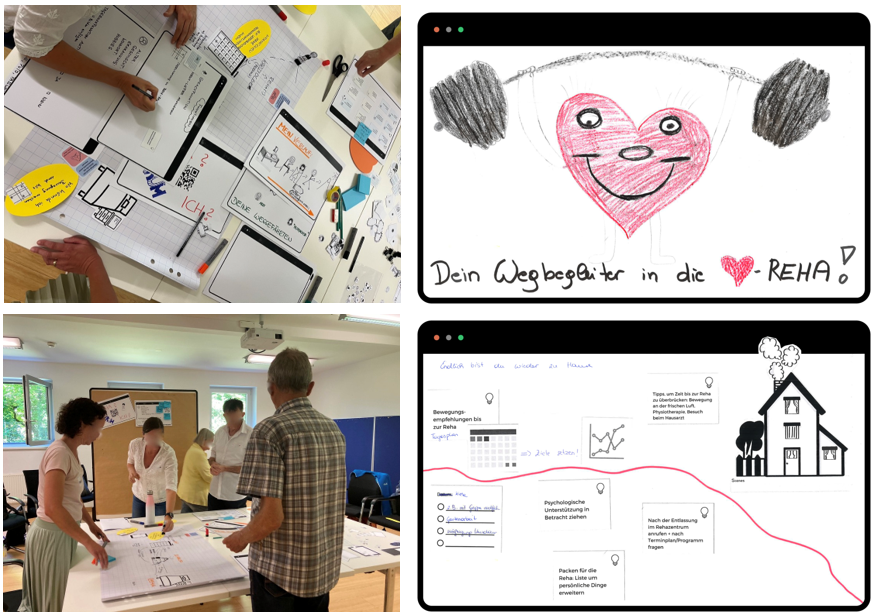
Figure 1. Impressions from the co-design group work.
Based on the results of the co-design workshops, a digital prototype was developed that addresses the expressed needs and contains the defined requirements. The next step will be to develop an app, which will then be tested by cardiac patients in the acute hospital setting.
Get involved!
We are always looking for people who are interested in testing our app! Currently we are looking for:
- Cardiac patients who participated in a cardiac rehabilitation programme
- Healthcare professionals from the cardiology sector (nursing staff, therapists, doctors...)
Please feel free to get in touch with us!
Additional information and contact
Isabel Höppchen, MSc
PhD student Human-Computer Interaction
Ludwig Boltzmann Institute for Digital Health and Prevention
Lindhofstr. 22, 5020 Salzburg
Contact: This email address is being protected from spambots. You need JavaScript enabled to view it.
Click here for the project website.
PATIO - Patient Involvement in Oncology
Be an expert on your disease and join our research!
The PATIO initiative is working hard to strengthen the voices of prostate cancer patients and their caregivers heard in medical research.
Why is it important to act now?
Porstate cancer affects a considerable number of people in Austria. On the one hand, around 65,000 men have suffered from this particular type of cancer by the end of 2020 (Statistics Austria, 2022), and on the other hand, there are countless partners, children, grandchildren and close friends who stand by the side of those directly affected by the disease. Over time, caregivers acquire more and more knowledge about prostate cancer and thus become valuable mediators of the everyday life with the disease and the corresponding research.
Our aim is to make everyday life with prostate cancer easier for those affected by the disease with the help of a digital communication tool.
Being disgnosed with "cancer" is a dramatic experience and prostate cancer is likely to be a challenging disease both during and after treatment. In addition to the physical effects, the disease can also affect your personal relationships, hobbies, work life and financial situation. It is your individual strategies for coping with the side effects of cancer that can be extremely valuable not only to other people affected by cancer, but also to research!
This is where the PATIO initiative comes in. Since 2020, we have been working closely with a total of nine patients and one patient's relative to improve the overall quality of life. We want to learn from their personal stories and experiences. Together, we want to find ways to improve everyday life with prostate cancer for everyone involved.
“PATIOSpots” as a result of direct public participation and engagement
The “PATIOSpots” health guide app was developed in a co-design and co-creation process with people affected. It allows users to find various relevant contact points on a worldwide map or to enter them themselves in a participatory way. Points of contact can be, for example, toilets, treatment centres, support groups, medical supply shops, etc. Other features can also be added to the locations (opening hours, cleanliness, facilities, etc.). The app is also directly linked to our website www.patiospots.com. Articles on current scientific issues and everyday life with prostate cancer are also regularly published here. Our "PATIO Lounge" forum is another networking platform where people can exchange views on various topics.
PATIO's vision is to provide the best possible information on treatment options and advice on how to manage the symptoms of the disease, but also to provide a communication platform for internal exchange and an interface between doctors and patients.
The initiative
The PATIO initiative is a collaborative research project that brings together scientific knowledge from different disciplines and the practical expertise of prostate cancer patients in Austria. The project is being carried out at the Medical University of Vienna in collaboration with scientists from academia as well as with the official support group for prostate cancer in Austria. Nine patients and one relative contribute their knowledge and life experience to the extended team. The project was funded by the Open Innovation in Science Center of the Ludwig Boltzmann Society.
Stay up to date
You just found out about “PATIO” by this posting and would like to stay informed about the next steps we are taking altogether at “PATIO”? We heartly invite you to sign up for our newsletter and to follow us on TikTok, Facebook and Instagram.
Gallery
-
 1. Round table 1. Round table
1. Round table 1. Round table -
 1. Round table 1. Round table
1. Round table 1. Round table -
 1. Round table 1. Round table
1. Round table 1. Round table -
 1. Round table 1. Round table
1. Round table 1. Round table -
 We keep the patient experience high! We keep the patient experience high!
We keep the patient experience high! We keep the patient experience high! -
 Round table - we are complete Round table - we are complete
Round table - we are complete Round table - we are complete -
 Round table Round table
Round table Round table -

-

https://www.citizen-science.at/en/immerse/learn-about-citizen-science/tag/health?start=10#sigProId7f230eb5a6
Ideenbox (Box of Ideas)
The Ideenbox (box of ideas) collects the problems of citizens and patients around the topic of health (such as physical and mental health issues, social consequences, care, health prevention...), for which solutions are to be developed with citizens, researchers and other stakeholders. Which health problem do you want research to solve? Who should be involved in finding a solution? Send us the health problem that you would like research to address through this simple online questionnaire (in German). The contribution does not have to include a solution, only the problem itself, which can address a personal or a general/societal concern.
See an example of a problem in the video below. In our YouTube playlist you can find more example videos.
Why are citizens’ health experiences important for research?
In some way we all research our own health: we learn which tea soothes the intestines and observe which pollen makes our eyes cry. All this information and knowledge come together in our personal reference book. We aim to enable the involvement of this expertise from people who are interested in or are facing problems related to health. By doing so, we not only try to make health research more democratic - we also hope to ensure that valuable knowledge from people with lived experience is not lost.
Why should I participate?
Because you have something to say and you know something that experts potentially do not know. You have your own experiences and observations that are extremely valuable for research. The Ideenbox gives you the opportunity to share your observations with experts in order to develop relevant recommendations for action and new research topics.
What happens after I have submitted my health problem?
With your consent, we will publish your contribution on the Open Knowledge Map platform from autumn 2021 onwards, thus making the contributions visible. We will also actively promote the published contributions in a larger community of different stakeholders. In addition, we offer you the option of publishing your contact details in pseudonymised form on the Ideenbox Knowledge Map. This allows researchers and other stakeholders to contact you (e.g. to learn more about your problem) without them first receiving your contact details or being able to establish your identity. Interested parties will only receive your contact details if you respond to their request. Further details on data protection can be found on pur project website. If you have any questions about data protection or other issues, you can write to us at This email address is being protected from spambots. You need JavaScript enabled to view it..
After the collection phase, participating citizens will evaluate the contributions together with researchers and edit them in workshops around spring 2022, to find solutions to the problems. All relevant stakeholders (depending on the problem i.e. health practitioners, teachers, social workers, psychologists…) will also be involved in this process. Therefore, when you submit your contribution you have the possibility to choose to remain in contact with us, so that we can keep you informed about the project results and invite you to the workshops. This should enable networking between society and science.
Who is behind the project?
The project is managed by the Open Innovation in Science Center (OIS Center) of the Ludwig Boltzmann Gesellschaft (LBG). The LBG is a recognised non-university Austrian research institution that operates 20 institutes, with a thematic focus on medicine and life sciences as well as the humanities, social and cultural sciences. The LBG specifically initiates new research topics in Austria and develops and tests new forms of cooperations between science and non-academic actors such as the public sector and civil society.
The OIS Center acts as a competence centre for this approach. The Center has already successfully handled a mental health campaign with the involvement of patients and citizens and has transformed their problems into institutional research.
Avian malaria
Reporting and collecting dead songbirds
You find a dead songbird in your garden? Your cat brings home a dead bird? If you are in this situation, you can support a current research project of the University of Veterinary Medicine Vienna.
Avian malaria
Within the framework of the Citizen-Science project "Avian malaria", dead songbirds and woodpeckers from Vienna, Lower Austria, and Burgenland are collected by the Institute of Pathology at the University of Veterinary Medicine Vienna. The birds are examined scientifically to gain further knowledge about the pathological effects of haemosporidian infections in songbirds. Haemosporidians are unicellular blood parasites that are transmitted by mosquitoes and other bloodsucking insects. The researchers are particularly interested in the conditions under which the blood parasites proliferate strongly in the tissues of the birds and thus cause serious and sometimes fatal avian malaria diseases. The collection campaign is carried out in cooperation with StadtWildTiere, Wilde Nachbarn and Birdlife Austria.
Reporting and collecting dead birds
You can report the finding of a dead bird using a report form on the homepage of StadtWildTiere. Besides, you can send a photo of the bird found via e-mail to This email address is being protected from spambots. You need JavaScript enabled to view it.. This makes it easier to check and confirm your report. Nearly all songbird species (except for blackbirds and crows) and woodpeckers are of interest. Information on the safe handling and storage of dead birds can be found on the project homepage.
How do the birds get to the University of Veterinary Medicine Vienna?
Shortly after your report, the project team will contact you (by phone or e-mail) to clarify whether the reported bird is needed and to arrange the pick-up of the dead birds in case of acceptance. To keep the effort for you as low as possible, the pick-up and transportation will be carried out by a transport service (Medlog). The transportation costs will be covered entirely by the Vetmeduni Vienna.
Scientific studies
The dead birds are subjected to pathological examination at the Institute of Pathology of the Vetmeduni Vienna and tested for the presence of haemosporidian parasites. In positive cases, the pathogen species are identified and tissue changes caused by the parasites are analyzed. In any case, the project team will inform you about the results of your finding, and the collected data will be published on the project homepage at the end of the study. All research-related data is stored in the internal patient database of the Vetmeduni Vienna.
The reporting and collecting campaign ran from June to October 2020.
Picture gallery
(Please click on the respective photo to enlarge it)
-
 Collect birds professionally (T Himmel) Collect birds professionally (T Himmel)
Collect birds professionally (T Himmel) Collect birds professionally (T Himmel) -
 Procedure of the Avian Malaria Project (VetMedUni PR) Procedure of the Avian Malaria Project (VetMedUni PR)
Procedure of the Avian Malaria Project (VetMedUni PR) Procedure of the Avian Malaria Project (VetMedUni PR) -
 Bird section (T Himmel) Bird section (T Himmel)
Bird section (T Himmel) Bird section (T Himmel) -
 Plasmodium Meronten (T Himmel) Plasmodium Meronten (T Himmel)
Plasmodium Meronten (T Himmel) Plasmodium Meronten (T Himmel)
https://www.citizen-science.at/en/immerse/learn-about-citizen-science/tag/health?start=10#sigProId5166146d72
Pollen Diary
The Pollen Diary was launched back in 2009 as a scientific project as part of a master's thesis at the WU Vienna Executive Academy. Meanwhile it has become an important service for pollen allergy sufferers in 13 European countries: Austria, Germany, Switzerland, France, Great Britain, Sweden, Finland, Croatia, Hungary, Lithuania, Serbia, Slovenia and Turkey. The number of users is growing every year, not at least because of the projects that were made possible by the Pollen Diary, such as the pollen app, the exposure map and the personalized pollen information.
Users have the possibility to document their own allergic complaints (intensity and symptoms) together with their medication intake. This gives an overview of the pollen allergy and allows them to compare the symptoms with the measured pollen concentrations on a continuous basis as well as at the end of the stress phase of the allergy. In addition, it is possible to download an excel file with all entries. There, all data are summarized and additionally correlation calculations of pollen count and symptoms are provided. This is a first step towards the identification of the trigger. And even after the diagnosis by a specialist, the pollen diary is a valuable support for patients and medics to track the success of a therapy, the administration of medication or the course of the pollen allergy.
To make such a service possible in the first place, the Pollen Diary is linked to the European pollen database, and can therefore be used without any problems in all countries where it is already available. Special attention has been paid to easy handling as well as to compliance with the latest EU directives on data protection (more under the terms of use of the Pollen Diary).
Since 2013, the pollen diary can also be accessed via the "Pollen" app on Android and iOS. If a user documents complaints, a personalised pollen forecast is available free of charge, tailored to the personal reaction profile. Via the app, users can also get the stress forecast and other practical helpers for the everyday life of an allergy sufferer, which are offered free of charge on the homepage of the Austrian Pollen Warning Service.
Europe-wide pollen information is reached via this portal: www.polleninfo.org.
Image gallery
https://www.citizen-science.at/en/immerse/learn-about-citizen-science/tag/health?start=10#sigProIdb081d519a9
"Pilzfinder"
"Pilzfinder" - what it's all about
Until a few decades ago, knowledge of wild edible and poisonous mushrooms was widespread. Especially the older population knew about the seasonal occurrence of the mushrooms. Finding mushrooms is a popular hobby for young and old, which is accompanied by great experience. In order to preserve and extend this knowledge and above all to bring it closer to the younger generation, the Mushroom Finder is now available. Due to the global warming of the last few years, the occurrence of mushrooms and the species spectrum is increasingly shifting. The consequences of global warming affect especially higher altitudes. Many fungal species have dispersal and adaptation strategies to respond to climate change, but there is a direct threat to arctic-alpine fungal species. Distribution records from different European countries show that the mushroom season is prolonged as a result of global warming, i.e. fungal fruit bodies today appear over a longer period of the year. The time of appearance is also often shifted further back in the course of the year. With the active assistance of the Mushroom Finder, these changes in the fungal world can now be recorded and incorporated into scientific evaluations, because mushrooms react immediately to the changing temperature development.
Within the framework of this project, Citizen Scientists collect fungal and phenological data. Via Pilzfinder the scientifically founded data are transferred to the "Database of Fungi of Austria" of the "Austrian Mycological Society" with the next update. The project Pilzfinder aims to comprehensively document the occurrence and distribution of fungi in Austria and beyond and to present and evaluate the available data. By comparing the distribution data, correlations between the temperature profile and the occurrence of the fungal species can be researched and thus the effects of climate change can be analysed.
With the Mushroom Finder you can actively contribute to the survey of the occurrence and distribution of the fungi by observing and photographing. Since the Mushroom Finder was launched, 14,595 finds have already been reported and 43,381 photos uploaded (as of October 2022)!
On request, we are happy to provide reports for non-commercial purposes, of course also for the reporters themselves. All scientific results are published in open access/and peer-reviewed journals. There will also be an annual report on the reports in the "Mitteilungen der Österr. Mykolog. Ges.".
Podcast episode
If you would like to learn more, you can listen to the Wissen macht Leute podcast episode about the project (in German). More information can be found here.
Interactive map:
Image gallery
(click on photos to enlarge them)
-
 Psathyrella piluliformis Psathyrella piluliformis
Psathyrella piluliformis Psathyrella piluliformis -
 Agaricus Agaricus
Agaricus Agaricus -
 greasy green brittlegill (Russula heterophylla; to the left, edible), death cap (Amanita phalloides; to the right, deadly poisonous) greasy green brittlegill (Russula heterophylla; to the left, edible), death cap (Amanita phalloides; to the right, deadly poisonous)
greasy green brittlegill (Russula heterophylla; to the left, edible), death cap (Amanita phalloides; to the right, deadly poisonous) greasy green brittlegill (Russula heterophylla; to the left, edible), death cap (Amanita phalloides; to the right, deadly poisonous) -
 Microbotryum pustulatum (Microbotryaceae) on knotweed Microbotryum pustulatum (Microbotryaceae) on knotweed
Microbotryum pustulatum (Microbotryaceae) on knotweed Microbotryum pustulatum (Microbotryaceae) on knotweed -
 Myriosclerotinia scirpicola Myriosclerotinia scirpicola
Myriosclerotinia scirpicola Myriosclerotinia scirpicola -
 Osmoporus odoratus Osmoporus odoratus
Osmoporus odoratus Osmoporus odoratus -
 Bare-toothed Russula (Russula vesca) Bare-toothed Russula (Russula vesca)
Bare-toothed Russula (Russula vesca) Bare-toothed Russula (Russula vesca) -
 Sparassis brevipes Sparassis brevipes
Sparassis brevipes Sparassis brevipes -
 Fly amanita Fly amanita
Fly amanita Fly amanita -
 Pig’s ear (Gomphus clavatus) Pig’s ear (Gomphus clavatus)
Pig’s ear (Gomphus clavatus) Pig’s ear (Gomphus clavatus) -
 Trametes Trametes
Trametes Trametes -
 Common morel (Morchella esculenta) Common morel (Morchella esculenta)
Common morel (Morchella esculenta) Common morel (Morchella esculenta) -
 Fire sponge (Phellinus igniarius) Fire sponge (Phellinus igniarius)
Fire sponge (Phellinus igniarius) Fire sponge (Phellinus igniarius) -
 Lentinus tigrinus Lentinus tigrinus
Lentinus tigrinus Lentinus tigrinus -
 Black cereal rust (Puccinia graminis) Black cereal rust (Puccinia graminis)
Black cereal rust (Puccinia graminis) Black cereal rust (Puccinia graminis) -
 Kuehneromyces Kuehneromyces
Kuehneromyces Kuehneromyces -
 Neoerysiphe galeopsidis (powdery mildew on nettle) Neoerysiphe galeopsidis (powdery mildew on nettle)
Neoerysiphe galeopsidis (powdery mildew on nettle) Neoerysiphe galeopsidis (powdery mildew on nettle) -
 Tulostoma brumale Tulostoma brumale
Tulostoma brumale Tulostoma brumale -
 English name unknown English name unknown
English name unknown English name unknown -
 Diatrype stigma Diatrype stigma
Diatrype stigma Diatrype stigma -
 red-belted conk (Fomitopsis pinicola) red-belted conk (Fomitopsis pinicola)
red-belted conk (Fomitopsis pinicola) red-belted conk (Fomitopsis pinicola) -
 Steccherinum ochraceum Steccherinum ochraceum
Steccherinum ochraceum Steccherinum ochraceum -
 sulphur tuft (Hypholoma fasciculare) sulphur tuft (Hypholoma fasciculare)
sulphur tuft (Hypholoma fasciculare) sulphur tuft (Hypholoma fasciculare) -
 fairy ring mushroom (Marasmius oreades) fairy ring mushroom (Marasmius oreades)
fairy ring mushroom (Marasmius oreades) fairy ring mushroom (Marasmius oreades)
https://www.citizen-science.at/en/immerse/learn-about-citizen-science/tag/health?start=10#sigProIdc8c058c4a9
Homegrown
“Homegrown - There is nothing like a homegarden”
Project description
With their variety of plant species and the experience of the gardeners, rural home gardens constitute an integral component of the cultivated landscape in the Lienz district, East Tyrol. Together with pupils of the BG/BRG Lienz school (and biology, math/physics and English teachers), scientists are investigating rural home gardens, including stocks of plant species and the use of plants. These results will be compared with those taken 20 years ago from the same gardens and will help to identify changes in gardens and their cultivation. These diachronic perspectives allow a precise and empirically established overview of changes in rural home gardens in the countryside of an industrial and services-focused state, in the context of demographic and economic changes and the search for a new identity.
To gain a better understanding of the local perception of the significance of rural home gardens, observations from gardeners and their neighbours concerning ecosystem services in gardens and their significance will also be recorded.
The project will also investigate cultivation techniques that adapt to extreme weather or ensure sustainable growth. It will also find out why people grow gardens and which values and approaches guide their behaviour or actions in gardens.
As part of an additional citizen science module, the local population in East Tyrol and Oberen Drautal will be combined. The module appeals to gardeners who are interested in taking surveys in their gardens, according to methodological direction and by monitoring their gardens, so as to demonstrate the material and immaterial ecosystem services in gardens. These gardeners and the cooperating young people will be trained in simple quantitative and qualitative survey methods for this purpose. This will take into account the opportunities that depend on the education and experience of each individual participant.
The starting point for developing analogue survey tools for the researching gardeners is a universal T-card office planner (49 x 47.3 cm, 7 panels, light grey) with 20 slots and 7 columns. The card slot system provides a weekday structure (Monday to Sunday), an hourly structure (6 a.m. to 10 p.m.) and six variables for recording ecosystem services.
On the universal T-card planner, the gardeners use the provided weekday and time scales with differently coloured slots to record the following specific information in writing about the individual ecosystem services during the recording period:
- Provisioning services, such as the yield of vegetables and fruits from the home garden (name of the person harvesting, time and duration, name of the harvested fruits and vegetables, the amount harvested and its respective use).
- Regulating services, such as birds, insects or pests in the home garden (name of the observing person, time and duration, name and number of birds, insects or pests observed).
- Cultural services, such as cultivation techniques in the home garden (name of the person cultivating, time and duration, tools used, etc.) or activities in the home garden when used as a place for relaxation and leisure.
The time spent in the garden will be recorded with a simple stopwatch. Some plant materials will be weighed out with simple, easily available kitchen scales. The card slots will be placed somewhere protected from weather or positioned where they are in the gardener’s view. This location will be decided on site with the gardener.
The duration of collections using the card slot system will be calculated at at least a week and will then be passed on to another gardener. Seven card slot systems will be prepared. The recordings ran from 1 August to 31 August 2018.
Through the participation of citizen scientists, a continuous observation and record of local perception (emic viewpoint) of the ecosystem services of home gardens is guaranteed. The methods were proposed by a gardener from the region being researched and were discussed/considered together with other gardeners from the area. The citizen scientists were actively involved in data acquisition and collection, data analysis and interpretation and the publication of results in the project report, scientific journals and conferences and in local media (dolomitenstadt.at). The collected data was continuously documented and stored by scientific guardians. Interim and final results were returned to the participating gardeners as part of the “give back” culture in the citizen science final event (“Gartenfest”).
Project collaborators
Heidemarie Pirker
Brigitte Vogl-Lukasser
Partners
BG/BRG Lienz (Renate Hölzl, Arno Oberegger, Hansjörg Schönfelder and the pupils of class 6b (from academic year 2018/2019: 7b).
Marie-Luise Wohlmuth (workshops on soil biology)
Ramona Walder (photography)
Peter Werlberger (video)
Gerhard Pirkner (dolomitenstadt.at)
Germain Weber & Team (Faculty of Psychology, University of Vienna)
Christian Ragger (REVITAL - Integrative Naturraumplanung GmbH)
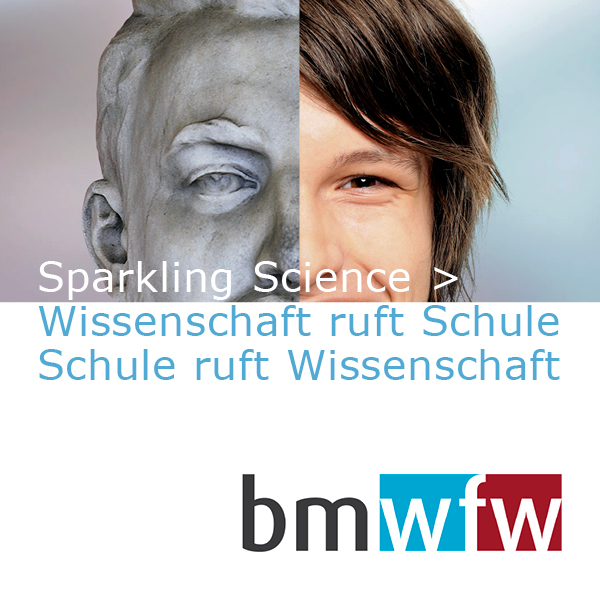
Image gallery
(Click on an image to enlarge)
https://www.citizen-science.at/en/immerse/learn-about-citizen-science/tag/health?start=10#sigProId537f10b2da
Ragweed Finder
The Ragweed Finder was developed in 2017 by the Austrian Pollen Information Service at MedUni Vienna and has also been available to download as an app for Android and iOS since 2019.
The Ragweed Finder consists of four components:
- Specimen report
- Ragweed distribution map
- Information about Ragweed
- Manual to recognize ragweed
Specimen report
The most important data such as location, population size and symptoms can be entered quickly using the specimen report. Uploading a photo is mandatory, otherwise a reported specimen cannot be verified by the experts of the Ragweed Finder team. Users can decide whether to report by name or anonymously (only via email address).
Ragweed distribution map
Already verified specimen reports of ragweed are listed herein within the current season. The number of symbols amounts to the number of reports displayed on the map. The colouring around the specimen sites indicate the symptom intensity.
About Ragweed
What is ragweed? Where does it grow? What is known about ragweed pollen allergy? What can be done? These and other questions are answered in this compilation of the most important information about ragweed.
Recognize Ragweed
Some ragweed pollen allergy sufferers do not know their allergy trigger and may walk along an infested field without recognizing the plant. However, in order to report ragweed, a reliable identification of the plant is required. Many photos as well as a short instruction on how to take convincing pictures turns the interested citizen into a ragweed expert.
What happens with the specimen reports?
First of all, the specimen reports have to be evaluated. Each verified report is then transferred to the distribution map. Users will be informed about the evaluation of their specimen report via e-mail. The verified specimen reports are forwarded once a week to the responsible institutions/federal state governments. This enables the authorities to set appropriate corrective actions (e.g. mowing) and locate ragweed hotspots.
So far, there is no comprehensive legal obligation to report or remove ragweed in Austria. Only in Burgenland a law to control and prevent the spread of ragweed was passed in 2021.
Highlights:
- For the first time, a tool for recording ragweed plants is available free of charge for all of Austria.
- The ragweed distribution map is available for the public.
- Thanks to a guideline and a checklist for reporting ragweed specimen, anyone can identify and report ragweed.
Ragweed pollen allergy sufferers can be an active support to contain the uncontrolled spread of ragweed!
